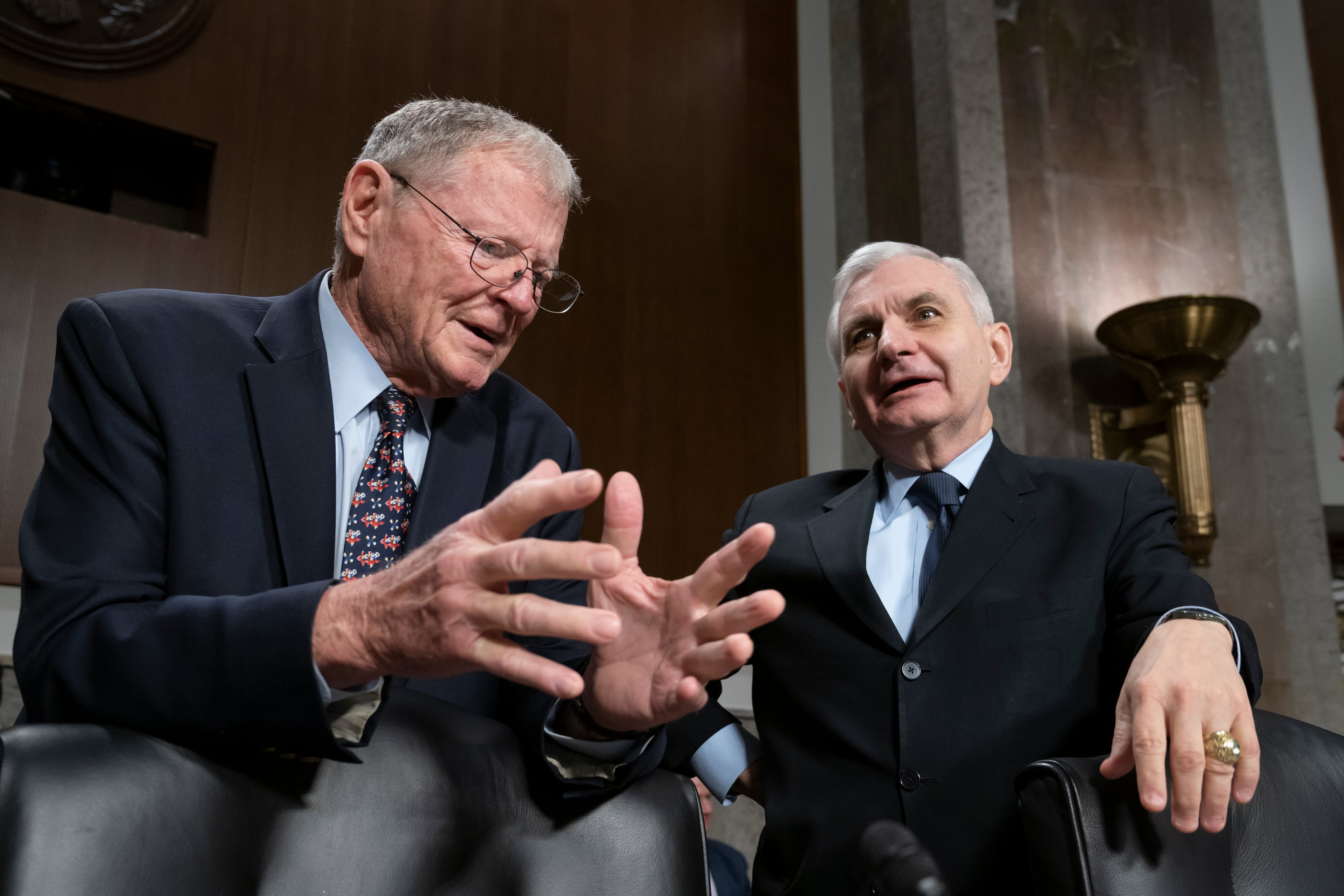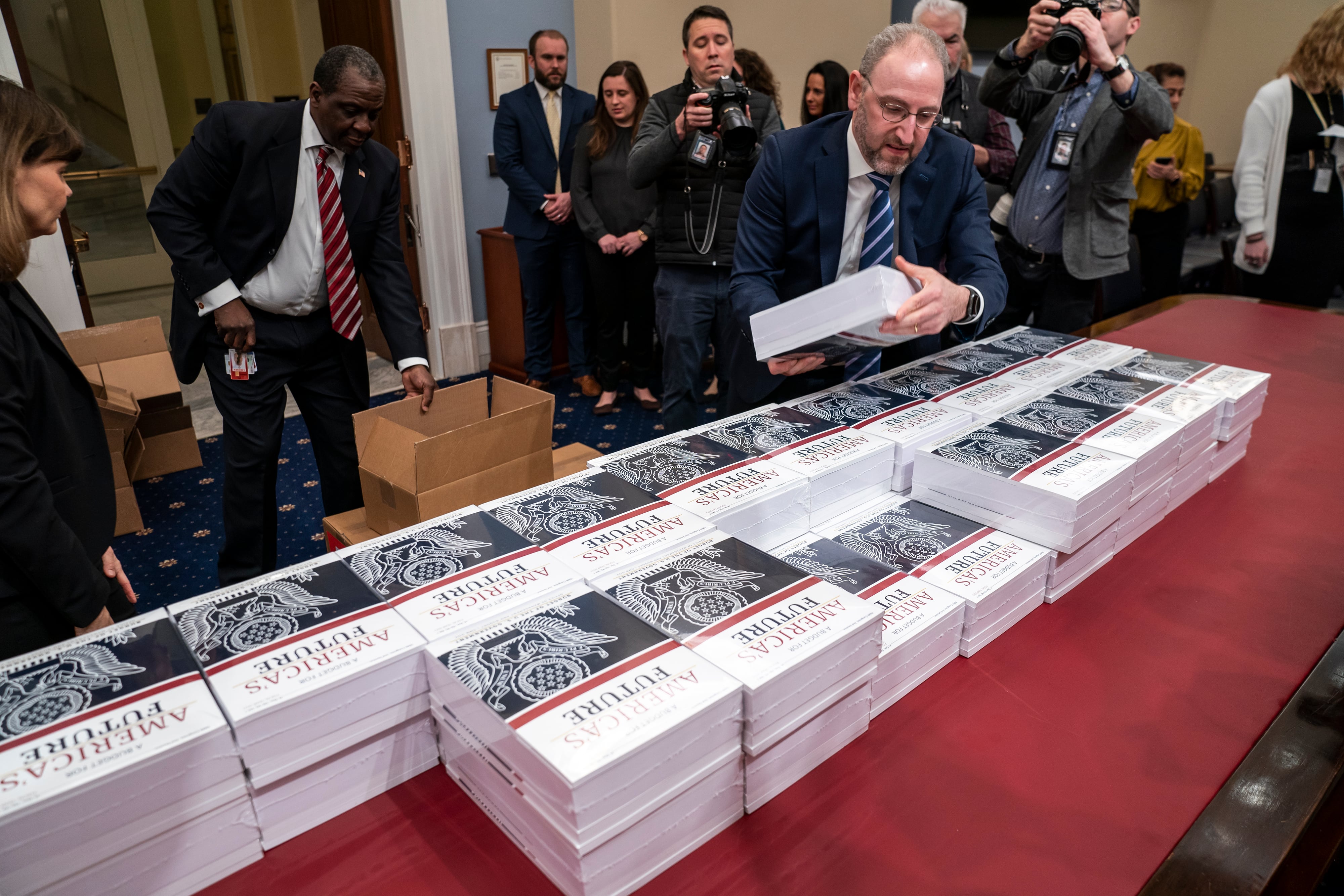Veterans Affairs programs would see another hefty boost in fiscal 2021 under the federal spending proposal unveiled by the White House on Monday, a sharp contrast to most other non-defense domestic budget plans.
President Donald Trump’s plan for next fiscal year calls for a more than 13 percent boost in VA discretionary spending to about $105 billion, bringing the department’s entire projected budget to more than $240 billion, up more than 10 percent.
If the entire budget plan were to become reality, it would make VA the second largest federal agency by discretionary spending, behind only the Department of Defense (which boasts nearly six times the VA proposed level). The Department of Health and Human Services, which had been the second-largest agency, is projected to receive a 9 percent funding cut under the plan.
RELATED

And VA is the only cabinet department to have a double-digit percentage spending increase under the president’s fiscal 2021 plan. The Department of Homeland Security is projected to see a 3.4 percent increase in its funding. The Pentagon is set to see only a 0.5 percent increase.
The Commerce Department is set to lose more than 37 percent of its fiscal 2020 discretionary funding under the president’s plan. The Department of Transportation is looking at a nearly 13 percent reduction, and the Department of Interior almost 14 percent.
Overall, Trump has proposed cutting all non-defense programs by about 5 percent, making the VA increase all the more dramatic.
White House officials have proposed several potentially controversial cost-savings measures for the veteran program spending, however.
The fiscal 2021 budget plan includes plans for a cost-of-living “round down” plan which would lower budget costs by $2.2 billion over the next 10 years. The move would reduce monthly veterans benefits payouts to the nearest whole dollar.
In the past, VA officials have argued that individual veterans stand to lose less than $12 per year and noted that past administrations have supported the idea. Still veterans groups have sharply criticized it in recent years as theft of veterans’ earned payouts, and successfully blocked the measure from advancing in Congress.
Similarly, the budget plan includes language to “standardize and enhance VA compensation and pension benefit programs” that is projected to save up to $750 million next year and $11.6 billion over the next decade.
That idea, also floated and defeated last year, would simplify standards mandating exams for compensation and pension benefits. Administration officials have argued the plan would make the bureaucracy more efficient. Veterans advocates have argued it would make it harder for individuals to get the exams and qualify for VA benefits.
The fiscal 2021 budget request is nearly double the total VA funding level from 10 years ago and more than five times the total in fiscal 2001, when the entire budget was about $45 billion.
White House officials are expected to formally introduce the federal budget plan on Monday afternoon. VA officials have scheduled a budget briefing for after that, to highlight department priorities for the coming fiscal year.
Ahead of the formal budget release on Monday, during a White house event promoting American businesses, Trump boasted that “we’re in the midst of a great American comeback" and said that his administration is “creating the most prosperous economy and most inclusive society ever to exist.”
Leo covers Congress, Veterans Affairs and the White House for Military Times. He has covered Washington, D.C. since 2004, focusing on military personnel and veterans policies. His work has earned numerous honors, including a 2009 Polk award, a 2010 National Headliner Award, the IAVA Leadership in Journalism award and the VFW News Media award.




